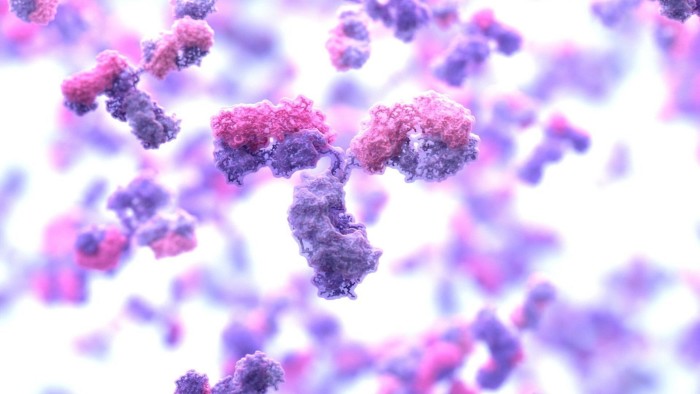Unlock the Editor’s Digest for free
Roula Khalaf, Editor of the FT, selects her favourite stories in this weekly newsletter.
A team led by Nobel Prize-winning scientist David Baker has used an artificial intelligence tool to create new functional antibodies in a breakthrough that could speed up drug development using the cutting-edge technology.
In a study published on Wednesday in Nature, researchers at the University of Washington showed how a generative AI model could be used to design entirely new antibodies — proteins that our immune systems produce to block infections — from scratch.
The pharmaceutical industry widely uses antibodies to create drugs, such as for cancer and coronaviruses. But creating the proteins using computers has been a long-standing challenge in drug design.
Baker, who was a co-winner of the Nobel Prize in Chemistry last year for his work on computational protein design, called the breakthrough a “step change” for the pharmaceutical industry.
“This is part of a big transformation in bioengineering of going from random library selection methods and evolution methods to rational design,” Baker said.
Conventionally, discovering antibodies is expensive, laborious and time-consuming, requiring the use of animal immunisation tests and extensive screening.
Scientists wait months for the test animal to produce an antibody response, and the work involves lots of trial and error. Using an AI tool could speed up this process to weeks, without the need for animal testing, and could help scientists find more precise targets.
The researcher’s AI model — dubbed RFantibody — is based on a previous model by the same lab that designs new proteins, and is fine-tuned with additional data on antibodies.
It was trained to generate new antibodies and predict which ones should be tested further in a lab, said Joe Watson, a researcher at the University of Washington and co-founder of Xaira Therapeutics.
In the study, the team were able to design antibodies that successfully bound to an actual cancer protein. Finding antibodies for cancer is hard because often the difference between a tumour cell and a normal one might be a single protein.
“Because we know where a piece is, we can just click on that, and tell the model, ‘this is where I want an antibody that binds,’” said Watson. “That’s why we think this is the future.”
Recommended
The creation of functional antibodies using AI was a “remarkable achievement”, said Francesco Aprile, associate professor in biological chemistry at Imperial College London.
“Antibodies are important molecules in research and medicine, but developing them is often slow and difficult,” he said. “This is an important step forward that could make antibody development faster and help drive progress in biotechnology and healthcare.”
The AI-boosted approach will now need to be tested on whether it can produce viable finished treatments for the diseases tested and other targets.
The faster design of antibodies is just one part of the lengthy process of drug development that can take many years. It will not speed up time-consuming later elements, notably clinical trials and regulatory approvals.


